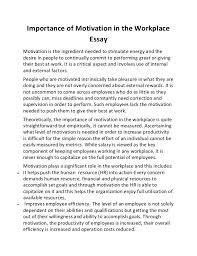Providing Salary History to Employers - The Balance.
Sometimes, a salary history in a cover letter can be stated as a sentence, such as “I currently earn in the mid-fifties.” A more detailed salary history might list your previous two or three jobs, and include the company, job title, and benefits package for each. Generally, do not share your salary history in a cover letter.
This is a sample letter which is a format for a cover letter for a position at an organization or company containing the salary history. This cover letter detals the reasons sought for the application. This business letter can be e-mailed, posted, couriered or faxed.The purpose of this online sample letter template is to familiarize you with the right format for this kind of a cover letter and.

And that’s because (a) it’s ridiculous to expect people to provide a full salary history (at all, but especially in a cover letter), and (b) it’s highly, highly unlikely that you’re going to be screened out for not providing more than your most recent history, which frankly is what they care most about anyway.

Using your knowledge around what salary is commensurate with your skills and experience will give you an edge in writing your cover letter. However, you may occasionally find during your job search that a potential employer will require you to include your salary requirements in the initial cover letter.

If the employer asks for your desired salary, address it in your cover letter. Do some research before you write this part of your letter to find out just how you can expect the position to pay based on the current job market. Provide the employer with a salary range of what you believe the position is worth.

A lot of postings for jobs want you to include your salary history and salary requirements when you are applying for a position. If the job posting doesn’t mention it, however, don’t offer any of the information about your salary.

Instead, use your cover letter to be resourceful, honest, and positive about the gaps in your work history. Whether you spent a few months travelling, or you took some time out to explore your career options, being proactive about your reasoning is vital to ensure prospective employers don’t jump to any conclusions about your work ethic.

How to write a cover letter with salary requirements Begin your cover letter by listing your name and address at the top. Drop down a few lines, then include the name of the contact person with company address along the left-hand margin of the page.

If an employer does not ask for your salary history, they may ask for your preferred salary range instead. If you do not feel comfortable sharing your salary history or salary requests with an employer because you don’t feel you know enough about the role yet or would rather discuss in person, you may choose to politely decline or deflect the question.

Use company stationary to prepare a salary verification letter. If you don’t have official stationery, place your company logo at the top of the page and type the address, phone number and Web.
Write your salary requirements toward the end of a cover letter or application. Do your research and try to provide a range that is within the employer's budget. If your salary expectation is significantly larger than industry average or the employer's budget, support it with the unique and valuable skills that you bring to the table.

The person reading your cover letter is looking for any reason to shred it and be done. Don’t give them an easy out. Make it as clear as possible that you’re interested in the position, you’re qualified for the position, and you want to set up a time to meet to discuss the position.

A cover letter is your pitch to the company about why this job should be yours (much like the interview question “Why should we hire you?”It is a brief, succinct overview of your work history, as well as a specific account of how your skillset and experience directly relate to the job you are applying for.


